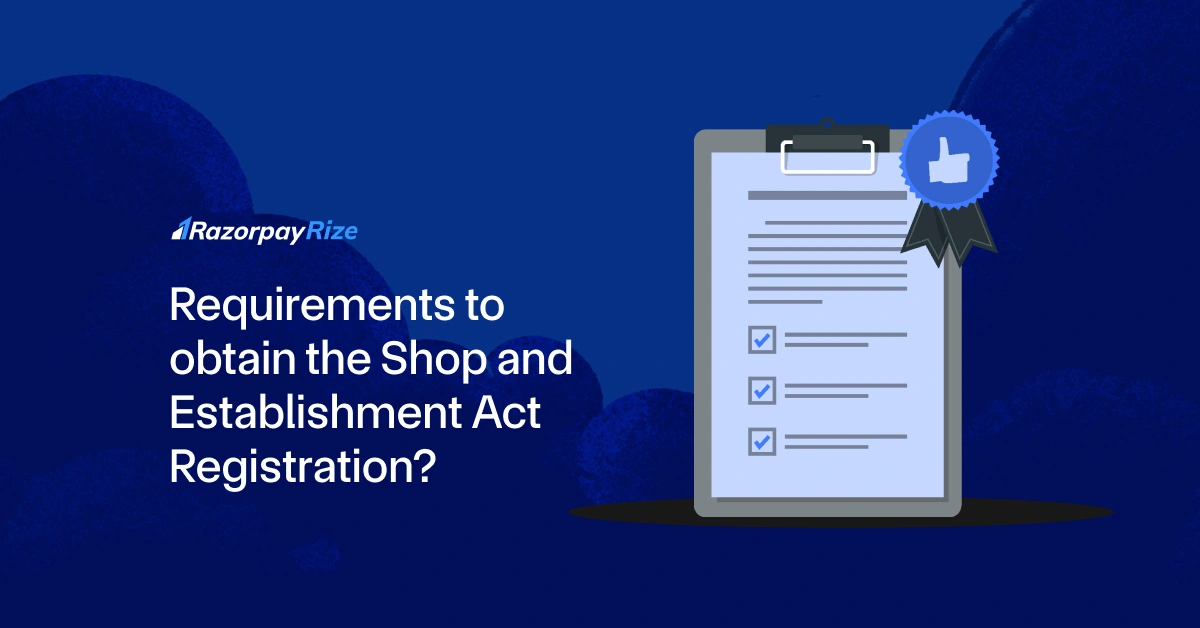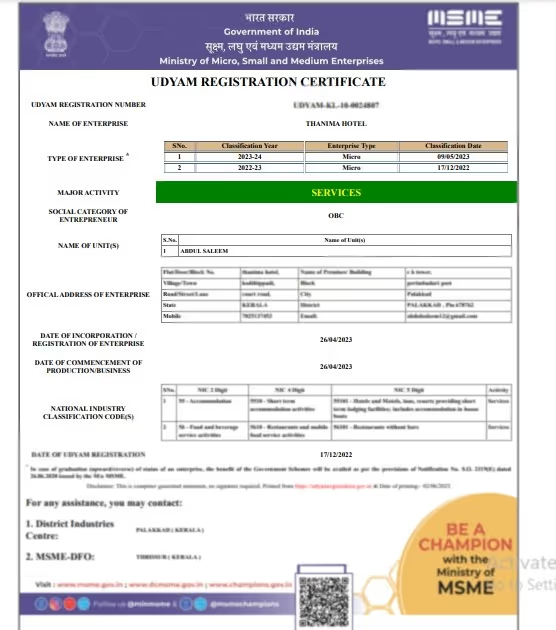Telangana has rapidly emerged as one of India’s most business-friendly states, offering a supportive ecosystem for startups, SMEs, and local entrepreneurs. For those planning to start a business with trusted partners, registering a partnership firm in Telangana provides both legal credibility and operational flexibility.
A registered partnership ensures smoother business operations, better access to financial services, and legal protection, making it a wise choice for small to medium-sized enterprises looking to formalise their operations.
In this blog, we’ll explore everything you need to know about Partnership Firm Registration in Telangana, including eligibility, required documents, process, and key benefits.
Table of Contents
What is a Partnership Firm Registration?
Partnership firm registration is the legal process that formalises a business structure where two or more individuals (partners) come together to share responsibilities, profits, and losses.
By registering the partnership with the Registrar of Firms in Telangana, the business gains a recognised legal standing, allowing it to:
- Operate officially in the state
- Enter contracts and agreements
- Open bank accounts in the firm’s name
- Seek legal recourse in case of disputes
Regulatory Framework for Partnership Formation in Telangana
In Telangana, partnership firms are governed by the Indian Partnership Act, 1932, which outlines the rights, duties, and responsibilities of all partners.
Under this Act:
- A partnership deed must define the terms of operation and profit sharing.
- Registration is optional but strongly recommended to enjoy full legal benefits.
- The firm must comply with state-specific registration procedures and tax regulations to maintain its legal standing.
Partnership Deed
A partnership deed is the cornerstone of any partnership firm- a legally binding document that governs the firm’s operations and defines the relationship among partners.
The deed typically includes:
- Name and address of the firm and partners
- Nature of business
- Capital contribution of each partner
- Profit-sharing ratio
- Duties and responsibilities of each partner
- Rules regarding admission, retirement, or removal of partners
Read More: Partnership Deed for Firms in India
Who Can Become a Partner in a Partnership?
In Telangana, any individual or legal entity capable of entering into a contract can become a partner in a firm. This includes:
- Indian citizens above 18 years of age and of sound mind
- Companies or LLPs, with authorisation under their constituting documents
- Trusts or registered entities, provided their governing rules allow partnership participation
Eligibility Criteria for Partnership Firm Registration in Telangana
To register a partnership firm in Telangana, the following eligibility conditions must be met:
- Minimum two partners are required (no upper limit prescribed by the Act)
- All partners must be 18 years or older and legally competent to contract
- A mutual agreement on profit-sharing and roles must exist
- Partners must possess a valid PAN and address proof
- The firm must have a registered office address in Telangana
Required Documents for Partnership Firm Registration in Telangana
Here’s a checklist of documents you’ll need to register a partnership firm in Telangana:
- Partnership Deed (executed on stamp paper)
- Address proof of the firm (rent agreement, utility bill, or ownership proof)
- PAN cards of all partners
- Identity and address proof of each partner (Aadhaar, Passport, or Voter ID)
- Firm PAN card (applied post-deed execution)
- Passport-size photographs of all partners
- Affidavit or NOC from the property owner (if applicable)
All documents must be attested and submitted to the Registrar of Firms, Telangana.
Related Read: Documentation required for registering Partnership Firm in India
Process of Registering a Partnership Firm in Telangana
Here’s a step-by-step breakdown of the partnership firm registration process in Telangana:
- Choose a Unique Firm Name
Ensure the name is not similar to an existing business and does not include restricted terms like “Government,” “State,” or “Corporation.” - Draft the Partnership Deed
Include details such as firm name, nature of business, capital contributions, and profit-sharing ratios. - Prepare Required Documents
Collect identity proofs, address proofs, photographs, and firm address documentation. - Submit Application to the Registrar of Firms
File the Application for Registration (Form No. 1) along with the partnership deed and necessary documents. - Pay the Prescribed Fees
Pay the applicable stamp duty and registration fees as per Telangana state regulations. - Verification and Approval
The Registrar verifies the documents and, upon successful verification, issues the Certificate of Registration.
Once registered, the firm can apply for a PAN, TAN, and GST and open a business bank account to officially commence operations.
Benefits of a Partnership Firm Registration in Telangana
Registering your partnership firm in Telangana offers several practical and legal benefits:
- Legal Recognition: Enables the firm to operate lawfully under the Indian Partnership Act, 1932.
- Enhanced Credibility: Builds trust with clients, vendors, and banks.
- Simplified Compliance: Compared to companies and LLPs, partnership firms have fewer compliance requirements.
- Flexibility: Partners can easily modify the business structure, roles, or profit-sharing ratios through a mutual agreement.
- Smooth Operations: Clearly defined responsibilities reduce conflicts and ensure efficient management.
- Access to Financial Support: Registered firms find it easier to obtain loans, open business bank accounts, and bid for contracts.
Frequently Asked Questions (FAQs)
Private Limited Company
(Pvt. Ltd.)
- Service-based businesses
- Businesses looking to issue shares
- Businesses seeking investment through equity-based funding
Limited Liability Partnership
(LLP)
- Professional services
- Firms seeking any capital contribution from Partners
- Firms sharing resources with limited liability
One Person Company
(OPC)
- Freelancers, Small-scale businesses
- Businesses looking for minimal compliance
- Businesses looking for single-ownership
Private Limited Company
(Pvt. Ltd.)
- Service-based businesses
- Businesses looking to issue shares
- Businesses seeking investment through equity-based funding
One Person Company
(OPC)
- Freelancers, Small-scale businesses
- Businesses looking for minimal compliance
- Businesses looking for single-ownership
Private Limited Company
(Pvt. Ltd.)
- Service-based businesses
- Businesses looking to issue shares
- Businesses seeking investment through equity-based funding
Limited Liability Partnership
(LLP)
- Professional services
- Firms seeking any capital contribution from Partners
- Firms sharing resources with limited liability
Frequently Asked Questions
Is it mandatory to register a partnership firm in Telangana?
No, registering a partnership firm in Telangana is not mandatory, as per the Indian Partnership Act, 1932. However, registration is strongly recommended because it gives the firm legal recognition and enables partners to:
- Enforce rights in court
- Open a business bank account
- Apply for GST and other licenses
- Build credibility with clients and investors
How long does it take to register a partnership firm in Telangana?
The registration process typically takes 7–10 working days, depending on the speed at which documents are verified by the Registrar of Firms, Telangana. This timeline may vary slightly based on:
- Accuracy and completeness of documents
- State office processing time
- Additional services like PAN, TAN, or GST registration
Can a partnership firm be converted to another business structure in Telangana?
Yes, a partnership firm in Telangana can be converted into another business entity, such as:
Can a partnership firm in Telangana own property?
Yes, a partnership firm in Telangana can own property in its name. Even though a partnership firm does not have a separate legal identity like a company, it can hold assets collectively on behalf of all partners.
The property is considered jointly owned by the partners, and any sale, lease, or transfer requires the consent of all partners as per the partnership deed.

















